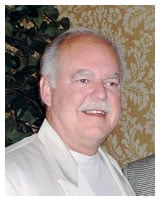
How to Define Your Niche Voice Acting Market
Join voice over expert Frank Frederick in his lecture “How to Define Your Niche Voice Acting Market”. In this episode, you’ll learn how to build a better business by focusing on a particular customer group, your niche. Focused, targeted marketing efforts toward a specific area or areas of an industry may result in increased income because clients and customers will view you as an “expert”.
Download Podcast Episode 34 »
Tags:
The Voice, Niche Marketing, LoveNotes, Marketing, Niche, Voice Overs, Voice Overs, Voice Acting
Transcript of How To Define Your Niche Voice Acting Market
[Opening Music]
Julie-Ann Dean: Welcome to Voiceover Experts brought to you by Voices.com, the number one voiceover marketplace. Voiceover Experts brings you tips, pearls of wisdom and techniques from top instructors, authors and performers in the field of voiceover. Join us each week to discover tricks of the trade that will help you to develop your craft and prosper as a career voiceover talent. It’s never been easier to learn, perform, and succeed from the privacy of your own home and your own pace. This is truly an education you won’t find anywhere else.
This week Voices.com is pleased to present Frank Frederick.
Frank Frederick: This is Frank Frederick and once again I’d like to offer my thanks to Voices.com for the opportunity to share a little information about the business side of the voiceover industry in the Voiceover Experts series.
Recently I established the need for determining your niche and how niching might help your bottom line. To find your niche you need to know your customers and potential customers. I often see unique expressions on the faces of students in the Small Business Marketing Strategy classes I teach when I ask, “Who are your customers? Who buys your services?” Voiceover professionals and new artists alike often answer, “Everyone,” or answer with a broad image of the voiceover industry and assumptions such as everyone can be my customer, may lead to wrong decisions, wrong pricing, wrong marketing strategies and ultimately business failure.
You can build a better, stronger voiceover business by identifying and serving a particular customer group, your niche market. Sending the commercial demo to a producer who works most often with long-form educational programs is not productive. By crafting marketing materials which focus on the specific style or type of work, the client or potential customers work with is how you focus on a niche. Before we step out of balance on this subject, remember there is nothing wrong with having more than one niche. Defining multiple niche markets is a good idea. Qualifying the overall market place will be a good investment in your voiceover business. Making money from more than one segment of customers who need your services is ever better.
Okay, let me help define a niche. A niche is a narrowly defined group of customers which include all of the following, customers who have the same specialized needs and interest, clients or prospective customers with a strong desire for your services, prospects for which you have created or can create a compelling reason to do business with you instead of someone else, customer prospects which can be reached easily with your targeted message and businesses and industries large enough to produce the volume of business you require. Niche marketing is all about appealing to a smaller group of people with a direct message.
Why do you need to define your customer and find a niche? Once you have determined how your customer sees you and your business, you can design your sales messages with great precision. The more narrowly you define your niche, the easier it is to cater to the specifically-defined interest of businesses in the industry. Niche marketing is a calculated, laser-guided approach to matching up prospective buyers with your services. By taking a narrow focused approach to marketing, you can most effectively reach and appeal to the specific audience which will most likely become a sale, lead or other action.
The shotgun approach to marketing where one message is sent to a broad audience may not fullfill a specific customer group’s needs. For example, Alyssa C. from Chicago, Illinois faced a dwindling client list. She had drafted several proposals to potential clients with a zero percent success rate. The jobs had gone to other voiceover talent even though the proposals were less creative and were quoted with a higher cost estimate then she had proposed. Alyssa kept with her approach and finally a prospective client took the time to talk with her about his perceptions. “We thought your voice was good and you were talented but your emphasis was too general for our needs. Now that we know more about you, we understand you are definitely capable of delivering the company messages for our medical companies. We are introducing a new product line soon and we will be in touch.”
Alyssa was stunned as she realized she had been presenting herself as being a jack of all trades and master of none, as the saying goes. Her marketing efforts were too general and concentrated on generic voiceovers and commercials rather than her specialty of medical words and pronunciations. She had failed to target the niche market or established her distinctiveness in this arena. Alyssa had been marketing to everyone and potential clients viewed her as best at nothing. Armed with this knowledge and inspiration, Alyssa refocused her marketing efforts toward the niche market. After a short six months, Alyssa is now the top choice for medical narrations in this fast-growing regional market. She started by creating an identity statement, targeting a specific market. She defined her customers, promoted her brand solidly and grew her business as well.
Throughout the book, Love Notes, Branding and Marketing for a Voiceover Artist, I suggest you do some research. Well, a lot of research and some market analysis to determine which segments of the voiceover industry can support your financial goals. Determine who your customers are, how they spend their money on marketing and how to reach the potential customers in your chosen market. What are you doing better more of or developing more than your competition? To find a unique and authentic premise and voice which differentiates you from others, you will need to do the research and analyze the date acquired.
The first step to defining your niche is to review your current customers. If you already have a client list for your voiceover business, you have the first pieces to your niche puzzle. Take a look at your client list and your income from each client last year. Determine the category of business for each customer and the income for each group of businesses in each category. You will likely find a distinct class of clients from which much of income has been derived. The portion of your clients in this now defined group of patrons is a niche.
A few key areas you need to learn about your niche or target customers include, what are the demographics of your customers, age, gender, occupation, general income, geographic location, business industry, how much money you spend annually for advertising and marketing, which categories of advertising do clients buy, how much is spent in each advertising area and more. How big is the niche market right now? This might include the annual revenues your competitors are currently generating or your projection of potential customers and markets size, if you’re new to the voiceover business. Are there specific segments or niches within your target market which you want to focus some special marketing attention on and will this specific market meet my financial goal requirements?
One way to get the answers is to survey the market place. Current customers and potential clients will give you ideas about your niche, if you ask. You can spend a lot of money to get professional help creating market research surveys but if you do not have the cash don’t worry. Design a survey yourself. Think about the composition of the questions in your survey. Only you can decide the information you need or want. You might choose to ask open-ended questions which can provide abstract or unscientific answers. With open-ended questions in your survey, you will not receive real significant data but you will acquire a variety of opinion. Chose concentrated multiple choice questions to provide specific and quantitative answers.
When you write questions for your survey, write clear, precise and short questions. Simple questions will not confuse those who participate or run a risk of biasing the answer of a respondent. Keep it short. Ten minutes is the maximum anyone should spend completing your survey. These translates to approximately 15 questions at most. Ask for just one piece of information with each question on our survey. Who do you survey? Good question and the answer probably will not surprise you, current customers, customers of your clients, prospective customers and past customers are the target audience for the information you require to find your niche.
Julie-Ann Dean: Thank you for joining us. To learn more about the special guest featured in this Voices.com podcast, visit the Voiceover Experts show notes at Podcasts.Voices.com/VoiceoverExperts. Remember to stay subscribed.
If you’re a first time listener, you can subscribe for free to this podcast in the Apple iTunes Podcast Directory or by visiting Podcasts.Voices.com. To start your voiceover career online, go to Voices.com and register for a voice talent membership today.
[Closing Music]
Links from today’s show:
Frank Frederick
Frank Frederick
Your Instructor this week:
Voice Over Expert Frank Frederick Frank Frederick, The Voice (TM), is a voice over artist, creator of the exclusive iSpeek file delivery software, and author based in Park City, Utah USA. Frank’s “LoveNotes: Marketing and Branding for Voice Over Artists”, have wowed the industry the continent over with his ingenious tips and contagious personality. Frank Frederick’s philosophy is that the right voice determines whether or not an audience listens to an audio production, and with his guidance, voice actors will find their own way to brand their voice to meet the expectations of their clients and woo them with their own brand of “lovenotes”. To learn more about Frank Frederick, visit his website.
Frank Frederick, The Voice (TM), is a voice over artist, creator of the exclusive iSpeek file delivery software, and author based in Park City, Utah USA. Frank’s “LoveNotes: Marketing and Branding for Voice Over Artists”, have wowed the industry the continent over with his ingenious tips and contagious personality. Frank Frederick’s philosophy is that the right voice determines whether or not an audience listens to an audio production, and with his guidance, voice actors will find their own way to brand their voice to meet the expectations of their clients and woo them with their own brand of “lovenotes”. To learn more about Frank Frederick, visit his website.
Comments
Frank,
Terrific information. Thank you.
Be well,
Bob
Hey Frank,
I mostly do cartoon voices and some radio imaging but it is hard to find a job with cartoon companies. Do you have any advice?
Thank you.
P.S. Great info.
Frank –
Thanks so much for this second podcast on Niche Marketing. After your first blog on the topic, I really began thinking about it. This podcast gives me some more traction!
Thanks again – Stu